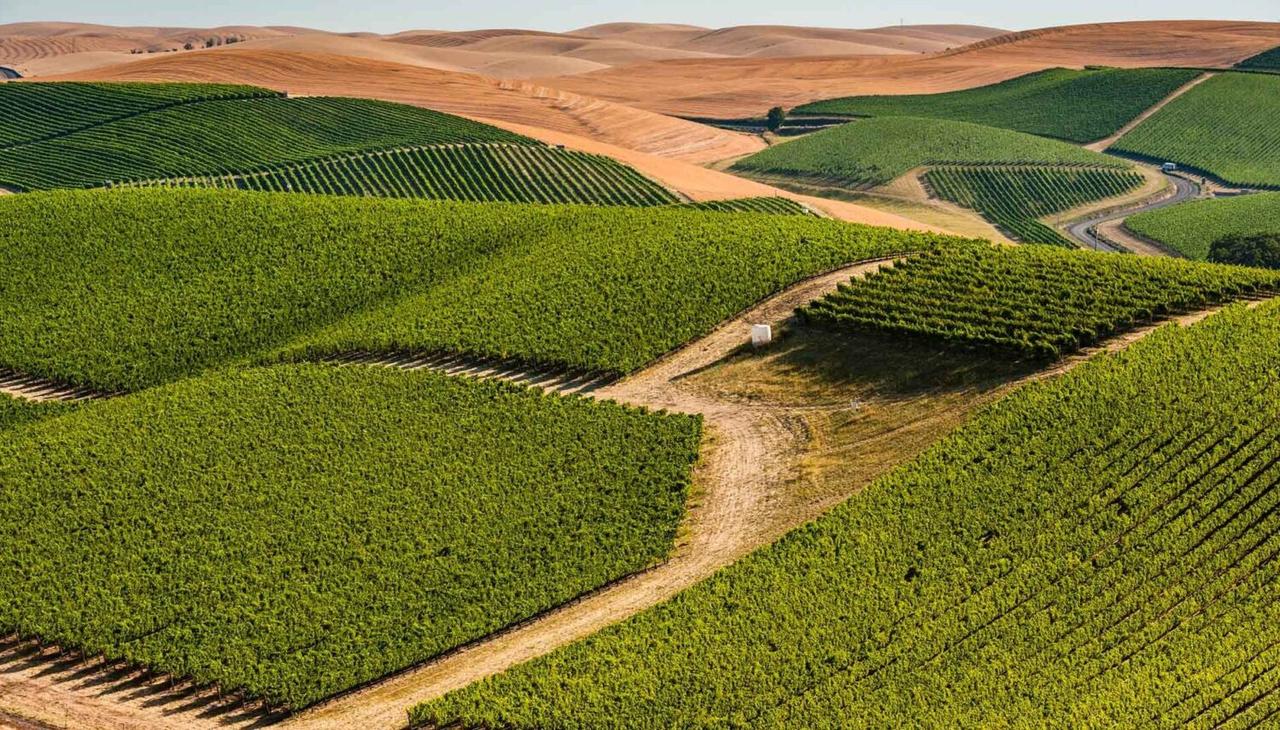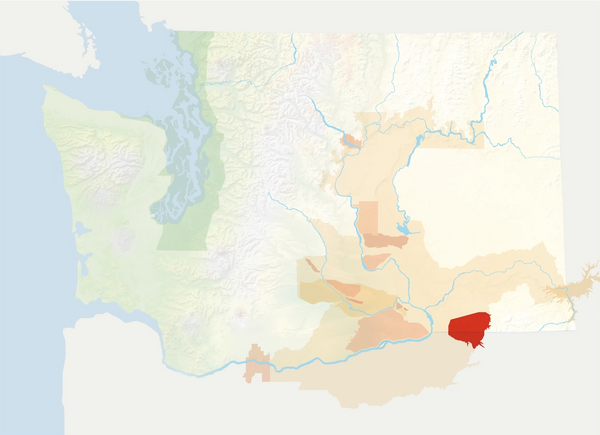
Walla Walla Valley AVA
The Walla Walla Valley is a shared appellation with Oregon, and home to 120+ wineries. Grapes are dominantly red, with Cabernet Sauvignon, Merlot, and Syrah leading the varieties.
Key statistics
1984
Total vineyard acreage: 2,933 (Washington acreage: 1,672)
7-22 inches

Characteristics
About the region
Walla Walla Valley has the highest concentration of wineries in the state and is also home to some of Washington’s oldest wineries. The valley is a shared appellation with Oregon, with just over half of the planted acreage on the Washington side.
The valley, which is also a major wheat and onion producer, is a climatically diverse growing region. The area is cooler and wetter than a number of Washington’s appellations.
Precipitation varies throughout the valley, from nine inches (23cm) in the western part of the appellation and 22 inches (56cm) at the eastern border, which stretches up into foothills of the Blue Mountains. This allows a limited number of vineyards in the eastern section to dry farm—an extreme rarity in Washington.
Most soils are well-drained, sandy loess over Missoula Flood slackwater deposits and fractured basalt. Above 1,200, the maximum height of the Missoula Floods, soils are simply loess over fractured basalt.
An ancient cobblestone riverbed defines the area to the south, a sub-appellation called the Rocks District of Milton-Freewater, which is located on the Oregon side of the valley. The area’s famous cobblestones absorb the sun’s heat, radiating it to the roots and grape clusters.
The valley’s diversity in climate and soils creates very different presentations in the wines from the southern part of the valley to the foothills of the Blue Mountains to the Mill Creek drainage to the areas to the north. Grape production is dominated by red varieties. Syrahs from Walla Walla Valley, particularly the southern section of the valley, are notable for their distinctive savory profiles.
Walla Walla Valley is wholly contained within the larger Columbia Valley.







